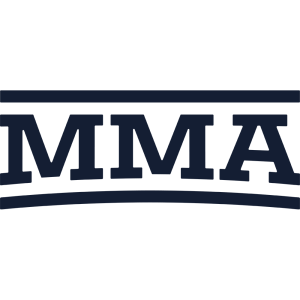Daniel Cormier addresses potential biases when calling fights for friends or past teammates in UFC
17/11/2023 15:00
Fighters, past and present, joining the UFC broadcast team adds a completely different element when calling events but it also creates the potential for a conflict of interest.
Every athlete who has transitioned to a role doing color commentary runs the risk of calling fights for friends and teammates, which could put them in an awkward position. Paul Felder has faced it when he's been on the broadcast team for fights involving Philadelphia based fighters like Sean Brady and the same could be said for UFC Hall of Famer Daniel Cormier who spent his entire career training out of the American Kickboxing Academy in San Jose, which houses fighters like reigning lightweight champion Islam Makhachev.
While every commentator working for the UFC gets accused of being biased at one time or another, Cormier admits he's actually overcompensated at times to ensure he doesn't do that.
"I've noticed and my friends have noticed that as much as people say you're going to be biased towards a person that you care about, I tend to go the other direction, which is unfair to my guy," Cormier told MMA Fighting. "But they understand and I try to call the fight as best I can. If a guy deserves praise, I give it to them.
"[There was] a real bad case of this with Blagoy [Ivanov]. Blagoy was fighting and he texted me on Monday and he goes 'DC, did I not land anything?' I said yes, you did and I gave you credit for it. He goes 'it just seemed like you were so intent on what was happening to me.' I said Blagoy, you weren't winning but I have to check myself."
Cormier knows that all eyes are going to be on him and the rest of the broadcast team when calling fights, but that spotlight seemingly grows even brighter when a friend or teammate is involved.
While it's impossible to expect perfection in that profession, Cormier says he's learned over time that sometimes he has to drown out the noise from critics.
"Part of the reason I was doing that was because I was listening to the voices when in reality those voices, it is the select few," Cormier said. "The select few is always louder than the majority. So you have to forget about what the select few is doing and just do your job."
As close as Cormier might be to some fighters, he's learned through years on the job that it's impossible not to grow closer to many of the athletes making up the UFC roster.
Cormier points to the recent fight between Makhachev and Alexander Volkanovski at UFC 294 as an example of a time where he just has to focus on calling the action in the cage without allowing any personal feelings to interfere.
"It's nerve-racking because you want to see those guys do well," Cormier explained. "But one of the beauties of the position that I'm in today is I have those great friends from when I was training and people that are my friends in life but I built relationships with all these other fighters.
"So watching Islam fight Alexander Volkanovski, while I am hoping Islam is going to do well, I also want to see Volkanovski do well because now I've built a relationship with this guy maybe not to that [same] degree but I know him and I know how good of a guy he is."
As difficult as it may be to stay the course through victories and defeats, especially when friends are involved, Cormier knows the fighters on the UFC commentary team just add so much to any given broadcast.
Whether it's him, Felder, Michael Bisping or Dominick Cruz, the former two-division UFC champion says that input and perspective is unmatched when calling fights. It's a much different vibe than past broadcast teams such as the former two-man booth that featured Joe Rogan alongside Mike Goldberg for almost every major card.
"I love Joe Rogan, he's the man," Cormier said. "It's a universal respect for Joe and the time that he's been in there but before when you had Joe and Mike Goldberg, Joe fought and trained jiu-jitsu with all those guys so they could make that connection with him. With Mike, he wasn't very connected.
"Now you have guys — me, Jon [Anik], Joe, Paul [Felder], [Michael] Bisping, Dominick [Cruz] — all of us now have connection to the guys. All of us. So every person that sits at that table now can have those types of personal relationships with these fighters. So it makes it a different way."


